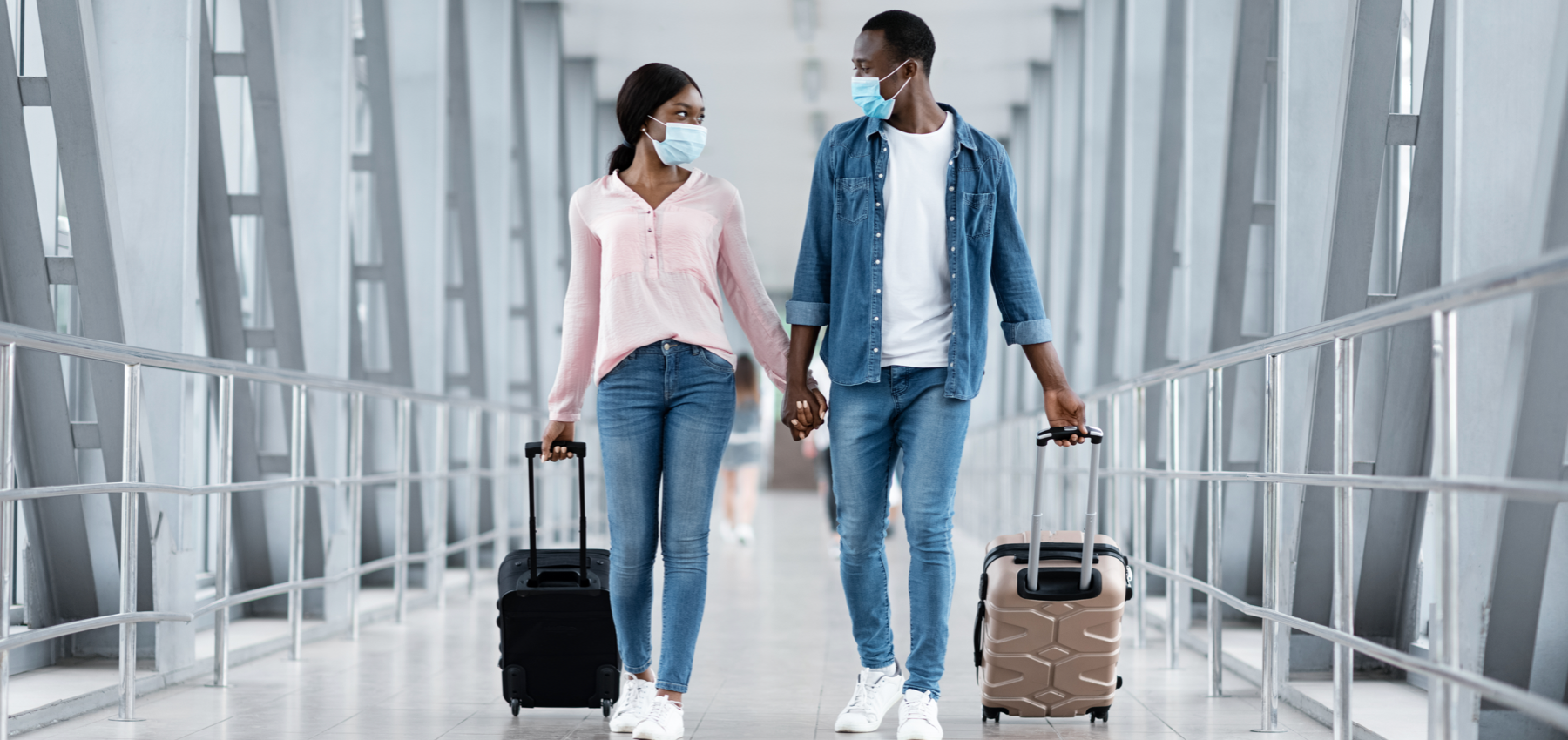Last updated: November 30, 2022
With an increasing number of people being vaccinated against COVID-19, the Canadian government has been easing travel restrictions and quarantining requirements for travellers entering the country.
Effective October 2022, the Government of Canada has removed all COVID-19 related travel restrictions, including vaccination and testing requirements, quarantine, the mandatory use of ArriveCAN, and masking in public places. However, as the pandemic evolves, travel restrictions may continue to be updated, so please check the government’s website for up-to-date information. The information available in this article is no longer valid. |
In this article:
- What are the current quarantine requirements for entering Canada?
- What quarantine changes is the Canadian government proposing?
- Which COVID-19 vaccinations are required for quarantine exemption?
- What if I am fully vaccinated but travelling with family members who are not?
- What if my CoPR has expired?
- Where can I get more information on mandatory quarantining when entering Canada?
Here’s how upcoming changes to quarantining regulations will affect Permanent Residents, temporary foreign workers, international students, and other newcomers to Canada:
What are the current quarantine requirements for entering Canada?
Currently, all travellers, including Permanent Residents, Temporary Foreign Workers, and International Students (and their accompanying family members) are required by law to take the following steps when entering or re-entering Canada:
- Starting April 1, 2022, fully vaccinated travellers no longer require a pre-arrival COVID-19 test to enter Canada. Effective February 28, 2022, travellers who are not fully vaccinated have the option of taking a molecular COVID-19 test within 72 hours of their departure to Canada or a rapid antigen test within 24 hours of their departure to Canada.
- Travellers who are not fully vaccinated must take an on-arrival COVID-19 test on Day-1 of their arrival in Canada. Starting February 28, 2022, fully vaccinated travellers will be randomly selected for on-arrival testing and will longer need to quarantine while they await the results.
- Travellers must adhere to a 14-day quarantine unless they are fully vaccinated with a vaccine that is approved in Canada.
- Travellers who are not fully vaccinated are also required to take a second post-arrival COVID-19 test on Day-8 of their mandatory 14-day quarantine period.
Essential service workers with a federal or provincial travel exemption are not required to quarantine for 14 days after arriving in Canada.
What quarantine changes is the Canadian government proposing?
What changes?
Fully vaccinated (with a Canadian-approved vaccine) international travellers will be exempt from the full 14-day quarantine upon arrival. However, they will still need to be asymptomatic at the time of their travel and must have a suitable quarantine plan until they wait for their COVID-19 test results. Starting April 1, 2022, fully vaccinated travellers no longer require a pre-arrival COVID-19 test to enter Canada. As of February 28, 2022, fully vaccinated travellers will be randomly selected for on-arrival COVID-19 testing and will no longer need to quarantine while they wait for the results. However, you will still need to have a quarantine plan in place to enter Canada.
Who do the changes concern?
These rules will apply to all fully-vaccinated travellers who are entering or re-entering Canada and who have been fully vaccinated against COVID-19 at least 14 days prior to arriving in Canada.
Currently, travellers who are not fully vaccinated are not permitted to enter Canada for reasons such as:
- visiting an immediate or extended family member, if age 18 or over
- attending a Canadian educational institution as an international student if age 18 or over
- childcare for your relatives
- a personal or casual visit
- air or rail crew, medical worker, transportation, or sports
- tourism, fishing, entertainment or leisure
- spending time at a seasonal home or cottage
- other discretionary reasons
Be sure to check the government’s latest updates on quarantine and border restrictions before planning your travel.
Requirements to qualify for quarantine exemption
In order to be exempt from the full 14-day quarantine, the eligible travellers must meet all of the following requirements:
- They will need to submit proof of full vaccination with one of the COVID-19 vaccines approved in Canada (see below) within the updated version of the ArriveCAN app.
- They will need to provide an official translation of vaccination documents if the documents are not in French or English.
- They must be asymptomatic at the time of travel.
- They will need to show proof of taking a negative COVID-19 test prior to arriving in Canada. Starting April 1, 2022, this will no longer be required.
- They must have a suitable quarantine plan.
Which COVID-19 vaccinations are required for quarantine exemption?
Permanent Residents, Canadian citizens, and travellers who are vaccinated against COVID-19 will be exempt from the full 14-day quarantine. The Federal government has stated that only COVID-19 vaccines approved for use in Canada will be accepted.
These vaccines currently include:
- AstraZeneca/COVISHIELD
- Janssen (Johnson & Johnson)
- Moderna
- Pfizer (Comirnaty, Tozinameran, BNT162b2)
- Bharat Biotech/Covaxin (BBV152 A, B, C)
- Sinopharm (Beijing) BBIBP-CorV (Vero Cells)
- Sinovac (CoronaVac, PiCoVacc)
The following vaccines are currently not accepted in Canada and will not count towards your vaccination status:
- Cansino
- Gamalaya (Sputnik V)
- Vector Institute (EpiVacCorona)
- Others
What if I am fully vaccinated but travelling with family members who are not?
Effective February 28, 2022, unvaccinated children travelling with fully vaccinated parents will no longer be required to quarantine for 14 days.
Newcomers to Canada should check the Government of Canada website for up-to-date information on COVID-19: Travel, testing, quarantine and borders.
What if my CoPR has expired
If your Confirmation of Permanent Residence was issued on or before March 18, 2020, and you were unable to travel to Canada until now, the expiry date on some of the documents in your application may have passed. You will not be able to travel to Canada with expired documents and will need to get your CoPR extended. You will be contacted by the IRCC and may be asked to take a new medical or submit new documents. You can find more instructions on the IRCC website.
Where can I get more information on mandatory quarantining when entering Canada?
For up-to-date information on changes to quarantining in Canada, visit the Canadian Government travel website.
Information on COVID-19 is also available in 15 other languages on the Public Health Agency of Canada website.




